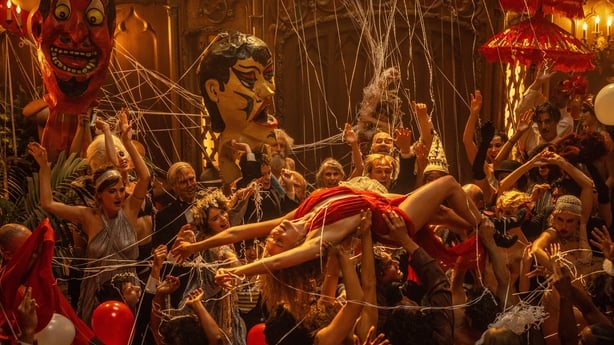Everybody carries their childhood with them. It's our constant companion, a reminder of the bricks that built us. But are they all worthy of a movie? Well, with some exaggeration, truth, and outright fiction, sure, all our formative years could be the subject of award season movie making.
Outside of novelists, film makers are best positioned as artists to resurrect their childhoods and show the world where they came from. But the resulting films are rarely straight origin stories.
This is perhaps the most surprising thing about Steven Spielberg’s new film The Fabelmans; the premier Hollywood director of our time has chosen, to his credit, to tell his tale mostly free of bombast and with little acknowledgement it is he behind the camera; because of course this time he’s technically in front of it.
There seems to have been a spate of this genre of film in recent years, what with Alejandro G. Iñárritu’s Bardo, James Gray’s Armageddon Time, Gretta Gerwig’s Ladybird, Kenneth Branagh’s Belfast, and Paolo Sorrentino’s Hand Of God, to name but a handful. But the movie director's bio-pic has always been with us, sometimes in more subtler forms. A half-century ago, Spielberg's fellow movie-brat, George Lucas, went home again by swapping specific biographical revelations for the full-frontal exhaust fumes flavoured American Graffiti and their teen drivers on the cusp of adulthood - and in many cases, the Vietnam war. Martin Scorsese beat a similar path with Mean Streets, giving us a rich, unforgettable sense of time and place while the New York streets he came of age on were still relatively unchanged.
Some directors born of the World War two generation, such as Woody Allen, chose the more direct route of nostalgia with his endearing Radio Days, having already offered glimpses to his childhood in Stardust Memories and his Oscar winning Annie Hall. The almost legendary Terrence Malick went introspective with his Tree Of Life. And when I say introspective…the man took his upbringing all the way back to the origin of the earth. And John Boorman’s Hope And Glory is perhaps the closest to Spielberg’s angle, if you swap out the movie bewitchment for a boy’s own blitz.
Speaking of stunning storytelling. Currently on release we have one the best coming-of-age movies ever made about the greatest player in all of cinema history: Hollywood herself. Damien Chazelle’s Babylon has had a hard time from the critics. But it is three hours doused in the extreme madness and joy that gave birth to American cinema. Check your expectations and you’ll have an unforgettable time of it.

The same applies to The Fabelmans, which unlike the Cinemascopic reverie of Babylon, is told on an smaller canvas, both emotionally, visually and exclusively focused upon its protagonist’s (young Spielberg, here called Sammy Fabelman) point of view. Sure, the ghosts of the director’s future are there to be spotted (echoes of Close Encounters and Saving Private Ryan, to name but two I clocked), but it'ss the complex emotions of growing up and coming of age that come to the forefront, and ultimately will make it worth multiple viewings. My filmworker dad had the best reaction: "That was really good! Do you know if he’s making a sequel?"
Who should go next? I vote for Jackie Chan. The Seven Little Fortunes was the name of the opera group the Asian film legend sprung from as a child. It would have everything: 1960s Hong Kong tableaux, complete with mad action, burgeoning romance and stunting for Bruce Lee.
I don’t know if I could be trusted with a movie camera, so someone else would have to sit in the director’s chair for the film of my formative years. Paul Thomas Anderson did a fantastic job with his Licorice Pizza. Though, I’m currently leaning towards the other Andersson, the Swedish one.
Coming soon: The Fighting Irish, Director: Roy Andersson. "An absurdist coming of age in 1970s Ireland. Firefighter Johnny MaCafee and his razor sharp wife, Cathleen, struggle to raise four kids in the Dublin suburbs. A lucky break as a film extra leads Johnny into a parallel life as a movie-star stand-in. Cathleen’s ongoing fight with depression, money-worries and her horror-movie fantasist son, Anto - who now wants to be an actor - begin to reach a climax as Johnny brings home random crew members and famous movie stars for dinner, resulting in a household where fiction, reality and the Dublin fire brigade collide head on."
Well, that’s my story; one with a little exaggeration, truth and outright fiction.


